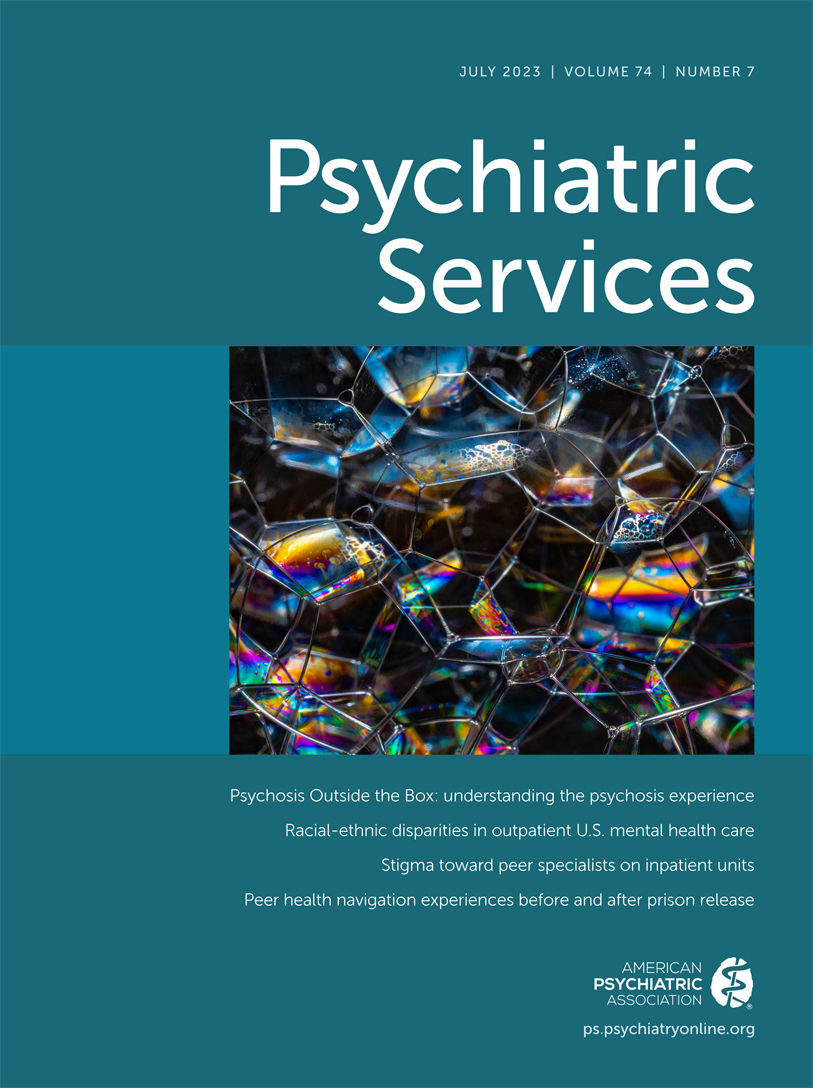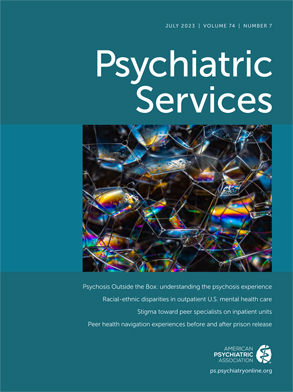Social adversities that increase the risk for mental disorders among children and adolescents predominate in many countries, as do low rates of mental disorder detection and limited access to mental health care for youths. Kenya is one such country. An estimated 36% of Kenya’s population lives below the poverty line (
1). The prevalence of mental disorders among Kenyan students is estimated to be 38% (
2). Exposures to a range of traumatic events (e.g., sexual abuse, gun violence, injury, or violent death of loved ones) increase the risk for posttraumatic stress disorder and other mental health conditions among Kenyan youths (
3). Urban youths in Kenya and Tanzania report the highest rates of exposure (
4). For some children, chronic mental health problems emerge because of prolonged exposures to traumatic events (
5). Recent studies have shown that psychological interventions for children and adolescents can be delivered effectively by nonspecialist providers in Kenya (
4). Such delivery approaches permit entry points into community care beyond the health system and have the potential to significantly increase access to mental health care. However, additional support mechanisms are needed to ensure the sustainability of high-quality care as services are expanded.
In Kenya, our team, comprising regional government, nongovernmental organizations, and universities, pilot tested tools from the Ensuring Quality in Psychological Support (EQUIP) platform (
www.equipcompetency.org), a joint World Health Organization (WHO)–UNICEF resource to facilitate competency‐driven training and supervision in psychosocial support, psychological treatments, and foundational helping skills for different cadres of providers (
6). The digital platform provides online competency assessment tools, e-learning courses, and related resources to measure provider competencies pre- and posttraining and before and after supervision and to tailor training and supervision plans for skills improvement in areas of need (
7). In Nairobi County, we trained community health volunteers (CHVs) to deliver psychological support in an informal urban settlement to adolescents who were experiencing psychological distress; we used the EQUIP platform to enhance training and assess CHV competency. Given the need to expand child and adolescent mental health (CAMH) services in Nairobi, our team considered strategies to sustain these efforts beyond the period of the pilot project.
Sustainability has many elements. Here, we define
sustainability as the continued health impact and delivery of evidence-based interventions over time (e.g., years after initial implementation), incorporating the complex and evolving nature of a given context. Our pilot project, EQUIP-Nairobi, explored four sustainment drivers: ensuring a supportive political context, building effective partnerships, engaging in rigorous decision making and planning, and building capacity (
8).
Ensuring a Supportive Political Context
Kenya’s policy context supports the expansion of CAMH services. The Kenya Mental Health Policy 2015–2030 framework acknowledges the influence of trauma on the population’s mental health and identifies children and adolescents as a vulnerable group for whom targeted interventions are a priority. In June 2019, the Kenyan president expressed concern about the rising effect of depression on Kenyans and directed the Ministry of Health, in collaboration with other departments, to craft an appropriate policy response. The outcome of this effort was a community-informed report, published in 2020: Mental Health and Wellbeing: Towards Happiness & National Prosperity. Building on this work, the Ministry of Health launched the Kenya Mental Health Action Plan 2021–2025 to operationalize the Kenya Mental Health Policy 2015–2030 framework. The policy and plan support access to mental health services at all levels of health care and the implementation of mental health promotion and mental illness prevention strategies.
A similar readiness for action on mental health exists at the county level. The Nairobi County Health Directorate recognized gaps in mental health services provision to the population, particularly within communities in informal settlements. Aligned with the goals of EQUIP-Nairobi, the Nairobi Metropolitan Mental Health Unit (MHU) engaged its staff psychologists and county CHVs with the EQUIP group. MHU values collaboration, and its readiness to partner is central to future training and supervision of CHVs and expanded EQUIP platform use.
Building Effective Partnerships
The nature and success of partnerships are particularly important determinants of sustainability. The sustainability of EQUIP-Nairobi required early MHU buy-in. Moreover, the project represents collaborative efforts of universities, nongovernmental organizations (NGOs), and the WHO. It builds on a 30-year collaboration between University of Washington and University of Nairobi (UON) researchers and a specific relationship between the departments of psychiatry at both institutions based on a jointly implemented program of research and capacity development at UON. Our partnerships were formed through existing professional and grant-funded collaborations. Frequent scheduled communication sustained momentum.
University of Washington faculty initiated a partnership with an NGO, citiesRISE (
9). Founded in 2017, citiesRISE seeks to improve mental health policy and practice for youths around the globe through city-based action. A landscape analysis by citiesRISE in Nairobi identified the informal settlement of Mukuru as a priority community for efforts to support vulnerable adolescents. The strategy of citiesRISE—empowering young people to become the center of mental health transformation by working with adult stakeholders—made it a conduit for youth participation in EQUIP-Nairobi. Nairobi team members of citiesRISE served as project coordinators, arranging meetings among the Nairobi stakeholders: UON, community, and regional government representatives and youth participants.
Ace Africa Kenya, a community-based NGO in Bungoma, Kenya, was another partner. Ace Africa Kenya has therapists trained to deliver cognitive-behavioral therapy (CBT) for youths, expertise in training a nonspecialist workforce, and a nearly 10-year established collaboration with the University of Washington. Ace Africa Kenya staff co-led pilot project training and led the psychosocial support training and supervision for CHVs, with support from UON faculty, an experienced CBT lay counselor and trainer from Zambia, and two Nairobi County psychologists.
The WHO led, in collaboration with George Washington University, a multicountry consortium to pilot test the EQUIP platform in the Middle East, Africa, and Latin America. Nairobi County was one of three pilot project sites in Africa.
Engaging in Decision Making and Planning
Several critical decisions influenced our pilot project activities. An important decision for sustainment was training psychologists alongside CHVs in our initial training phase, which used a 2-week, structured, interactive, module-based, and trauma-focused CBT course. We trained four psychologists to meet the needs of the MHU, enabling the psychologists to treat young people who were not involved in the study. Psychologists with skills in trauma-focused CBT could supervise CHVs delivering care. Also important for sustainment were efforts to integrate youths into each phase. This expanded young people’s capacities, exposed them to system-level leaders, and ensured that care was tailored to the needs of vulnerable youths. Moreover, under the guidance of citiesRISE colleagues in Nairobi, we selected a community wherein team members had existing relationships and county CHVs were interested and available. Because of the COVID-19 pandemic, the team shifted plans to roll out trauma-focused CBT training to a larger group of CHVs and created a shortened remote training session on the delivery of a five-session psychosocial support intervention based on the initial skill-building, trauma-focused CBT phase. This adaptation met a need of the MHU, whose team experienced high demand from clients and health workers for psychosocial support. Finally, we designed and hosted virtual training of CHVs to minimize COVID-19 risks and prepared CHVs to deliver treatment by phone. We demonstrated that telehealth with older adolescents was possible, paving the way for future use of this service modality. EQUIP competency assessments were adapted to assess the skills required to deliver psychological support remotely, and training modules were developed in EQUIP for remote care and supervision.
Building Capacity
The central activity of the partnerships was building mental health treatment capacity. We focused on CHVs already working in Mukuru for Nairobi County to expand human resource capacity to deliver mental health services. We included psychologists deployed by Nairobi County in our plans to provide treatment and build MHU capacity by having them supervise and support CHVs. The EQUIP platform introduced methods to assess competency and tailor training and supervision.
During our adaptation to the challenges posed by the pandemic, the UON faculty, Ace Africa Kenya trainers, county psychologists, and the Zambian CBT trainer developed a synchronous virtual training plan by using the low-bandwidth software Jitsi (
https://jitsi.org). We trained small groups of CHVs together to allow ample opportunity for role-playing. This structured training involved reviewing “step sheets,” which guide each module, trainer modeling, and trainee practice with feedback from trainers and peers. After training, trainees met virtually in small groups with one trainer for continued skill practice before providing psychosocial support to youths. Trainers determined when individual CHVs were ready to deliver services and provided weekly and as-needed supervision during delivery.
Youth engagement was supported by citiesRISE to enhance the effectiveness of EQUIP implementation in Mukuru. In an approach similar to that used to engage youths in EQUIP implementation in Lebanon (
10), our team recruited five students involved in promoting mental health through theater arts to receive training in role-playing as adolescents receiving services. Five students with a background in psychology were trained on the EQUIP platform to rate the trainees on the EQUIP foundational helping skills competencies (
7). In Lebanon, use of EQUIP and youth involvement in competency-driven training increased trainee competency by 18% compared with standard training methods (
10).
Lessons Learned and Conclusions
Our pilot project activities revealed gaps in CAMH services. Stronger relationships across sectors (such as social services for food security, child protection, and others) would provide additional safety, support, and preventive care for adolescents experiencing adverse circumstances, and dedicated policies could strengthen CAMH care. Kenya does not have a CAMH policy; therefore, multiple policies implemented through different departments address CAMH, reducing the likelihood of focused resource allocation. In 2021, mental health conditions cost Kenya approximately US$571.8 million, yet focused investment in cost-effective interventions could prevent nearly 1 million cases of mental disorders (
11).
We experienced the value of partnerships rooted in the health care system for tailoring the intervention and testing models of sustainability. Our partnerships experienced challenges due to the pandemic in 2020 when our work halted temporarily. However, the real-time assessment of need by the MHU, coupled with frequent communication, pushed us to adapt the intervention in order to provide support to youths during the pandemic. We made the training virtual yet accessible to CHVs by conducting it mainly via mobile phones. We also pivoted the therapy modality to phone delivery to accommodate the constraints of the pandemic. One of the lessons learned was that capacity building, that is, skills development or training, is needed among immediate supervisors.
The health system’s services have a pyramid structure, with the community (i.e., villages, households or families, and individuals) forming the base and tertiary hospitals (e.g., Mathari National Teaching and Referral Hospital and other referral hospitals) forming the apex. Our project trained providers at the base, where health services are delivered by CHVs supervised by community health extension workers. However, engaging in a project in which CHVs are supervised by more senior staff (i.e., psychologists or supervisors trained only for that project) can destabilize existing supervisory hierarchies, sidelining the extension workers. In subsequent activities, adequate time to train extension workers, who may be less likely than psychologists to have had previous exposure to psychological treatment, should be prioritized. This approach would enable projects to retain the existing supervisory structure.
On the basis of these experiences, we recommend three strategies for achieving sustainable, competent, community-based care in Kenya: purposefully recruiting program champions, including youth advocates for mental health; embedding activities in core policy by integrating EQUIP tools into preservice training for psychologists, psychiatrists, social workers, community health extension workers, and CHVs; and anchoring the multistakeholder approach in policy. Finally, a rigorous evaluation of training approaches supported by EQUIP-Nairobi must precede their broad implementation.

